Gandhiji’s Bonding with Islam
Mohandas Karamchand Gandhi, often referred to as the Father of the Nation in India, was a prominent figure in the fight for Indian independence from British colonial rule. He became famous for his unique philosophy of nonviolence, also known as the Satyagraha Movement, which advocated for peaceful resistance against British colonialism.
During a time when the British were attempting to sow discord among Indians based on religious lines, Gandhi played a crucial role in promoting peace and unity among people of different faiths. He drew inspiration from Islamic history to find solutions to maintain peace within the Indian community. His respect for Islam and its followers influenced his actions and decisions profoundly.
Gandhi's deep connection with Islam even led his elder son, Harilal Gandhi, to convert to Islam at one point, although he ultimately returned to their ancestral religion due to familial pressure. Despite being a follower of Sanatan Dharma, Gandhi found inspiration in the life of Prophet Muhammad, which sometimes led to misconceptions about his religious preferences.
Born on October 2, 1869, in Gujarat's Rajkot city, Gandhi grew up surrounded by Hindu and Muslim communities, which influenced his religious beliefs. His mother, Kasturba Gandhi, hailed from the Pranami tradition, which emphasized devotion to Lord Krishna and included teachings from various religious texts such as the Bhagavad Gita, Bhagavata Purana, Vedas, Quran, and Bible. Gandhi's upbringing instilled in him a deep reverence for truth and spirituality.
Gandhi's quest for truth led him to forge many friendships outside of his family circle, including with Muslims like Sheikh Mehtab, his classmate, who often served him beef, a dish Gandhi enjoyed. In 1909, rumors circulated in Purbandar, Rajkot, and Mumbai, suggesting that "miya aur mahadev ki nahi banti, ban hi nahi sakti" (Muslims and Hindus cannot reconcile). Gandhi, intrigued by the origins of this rumor, was unaware that it pertained to him.
Despite his simple lifestyle, Gandhi maintained close relationships with Muslims in his professional life, such as Dada Abdullah, a renowned shipping merchant who sought Gandhi's legal assistance for his cousin in South Africa. Another close friend was Abbas Tayyib Ji, whom Gandhi entrusted with leadership roles, advising his followers to turn to Tayyib Ji in case of his arrest during the Dandi March. Notable figures like Khan Abdul Gaffar Khan, known as the "Frontier Gandhi," and Abul Kalam Azad also played significant roles in Gandhi's life.
Gandhiji's deep reverence for Islam led him to study the Quran and immerse himself in the life of Prophet Muhammad (PBUH). He was profoundly impressed by the Prophet's exemplary character as a man of action and faith. Gandhi was particularly moved by the unwavering devotion and simple lifestyle of the early followers of Islam, as well as their dedication to serving the underprivileged and upholding their religious principles.
In expressing his admiration for Prophet Muhammad, Gandhi highlighted the qualities that resonated deeply with him. He emphasized the Prophet's humility, integrity, loyalty, courage, and unwavering faith in God and his purpose. Gandhi believed that these virtues enabled the Prophet to overcome all challenges and obstacles with grace and dignity. He saw Prophet Muhammad as a beacon of righteousness and bravery, whose actions always aligned with his beliefs.
In his own words, Gandhiji said: "I was curious about the finest aspects of the life of someone who presently commands the undeniable affection of millions of people. I was more than ever sure that it was the Prophet's strict self-effacement, his rigorous simplicity, his meticulous attention to promises, his deep loyalty to his friends and followers, his daring, his selflessness, and his complete faith in God and his own purpose. These overcome all difficulties. Muhammad was a magnificent prophet. He had no fear except for God and was quite brave. It was never discovered that he would act one way and talk another. He did as his heart told him. The prophet was one of the fakirs. If he had wanted to, he could have commanded wealth. When I read about the hardships that he, his family, and friends willingly endured, I started crying. A truth-seeker like me can't help but respect one who walked with God's fear, was constantly focused on God and had boundless compassion for the human race."
Gandhiji further added, "I have read Sir Abdullah Suhrawardy's collection of Prophetic sayings with much interest."
In addition to his fascination with the life of Prophet Muhammad PBUH, Gandhiji dedicated his free time to studying the Quran regularly, even during his periods of imprisonment. He perceived no disparity between the Quran and the Upanishads, viewing them both as guides to total surrender to God. He believed that dharma, or righteousness, inherently involved unwavering commitment to truth. This belief aligned with his interpretation of Surah Fatiha's Quranic injunction to stay on the straight path and avoid deviation. Gandhiji made it a practice to include Surah Fatiha in his daily prayers, considering it an integral part of his spiritual routine.
Charles Freer Andrews, also known as CF Andrews or Deen Bandhu, a missionary and close confidant of Gandhiji, recounted that no one at Sabarmati Ashram was more adept at silently guiding and supporting Gandhiji during prayer than the Imam who accompanied him from South Africa. Gandhiji consistently integrated passages from the Quran Sharif into his prayer gatherings, and he often sought Quranic recitations before commencing these gatherings.
Gandhi was tired to foster love and harmony between Hindus and Muslims. During the tumultuous period of partition, when some Muslim individuals approached him seeking guidance on whether to remain in their homes in India or migrate to Pakistan due to escalating violence and insecurity, Gandhi urged them to stay in Hindustan. However, they expressed concerns about their safety, prompting Gandhi to respond with characteristic compassion and empathy.
In a display of his profound commitment to protecting the lives of Muslims, Gandhi tenderly assured them: "If anyone of you is killed, the Hindus may have to pay the price for it with Gandhi's life." This poignant statement exemplified Gandhi's deep sense of responsibility and his willingness to sacrifice his own life to safeguard the lives of others.
Later, during the evening prayer, Gandhi publicly reiterated his promise to protect the lives of Muslims, declaring that if any harm befell them in Bihar, the Hindu community would be accountable, and he would willingly bear the consequences with his own life. This selfless act exemplified Gandhi's extraordinary dedication to promoting peace and unity, even at the risk of his own safety.
Gandhi's political life is marked by numerous instances of solidarity with Muslims, notably through his support for the Khilafat Movement. In 1919, when the British sought to dismantle the Khilafat System in Turkey after the Ottoman defeat in World War I, Gandhi urged Indian Muslims to protest this policy. Teaming up with Ali Brothers, founders of the Khilafat Movement, Gandhi became president of the Khilafat conference on November 23, 1919. Initially aimed at unifying Hindus and Muslims, the movement faced opposition from leaders like Rabindranath Tagore and Ali Jinnah, leading to renewed tensions between the two communities.
In essence, Gandhi's affinity for Islam was evident in his actions, despite being a devout Hindu. He also held respect for Christianity and Zoroastrianism, carrying the Quran, Bhagavad Gita, and Torah with him. However, the Quran particularly inspired him, providing valuable lessons from the life of Prophet Muhammad and his companions, instilling in him courage and strategic insight.
References:
The collected works of Mahatma Gandhi, vol. 29, Publication Division-2014
MKGandhi.org
LiveMint:https://www.livemint.com/news/india/in-search-of-the-muslim-gandhi-11569831643651.html
Why I killed Gandhi by Nathuram Godse
Mahatma Gandhi: His Life and Ideas
Mahatma Gandhi 100 Years, collection of Essays, edited by S. Radhakrishna
About the author:
Minnath Alam, a research scholar at Darul Huda Islamic University in the department of Study of Religion, currently pursuing a degree in English Language and Literature. One of his hobbies is to write occasionally on special days, and raising issues related to failureness of governance.
E-mail Id: minnathalamsuraj@gmail.com
WhatsApp No.: 9633260197
Disclaimer
The views expressed in this article are the author’s own and do not necessarily mirror Islamonweb’s editorial stance.

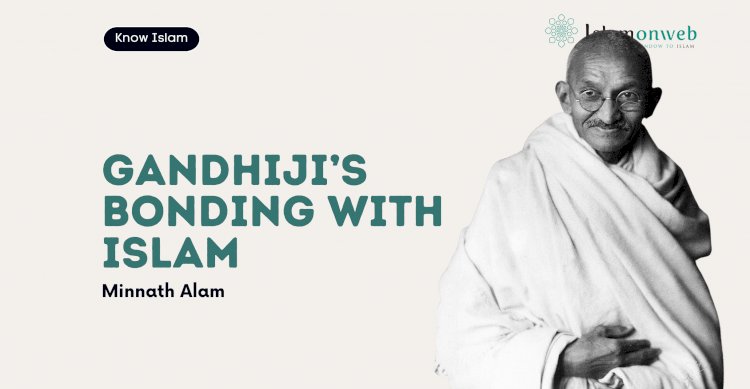


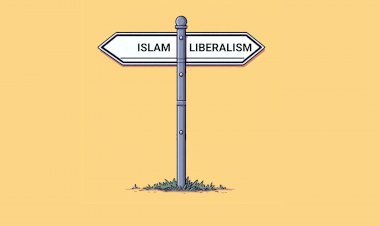
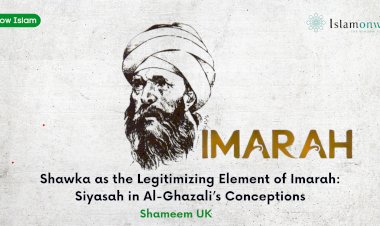
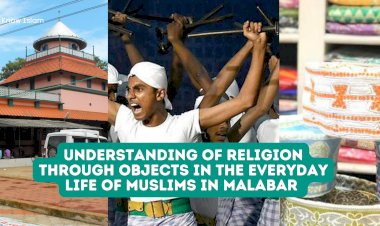


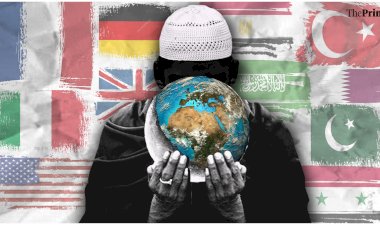














Leave A Comment